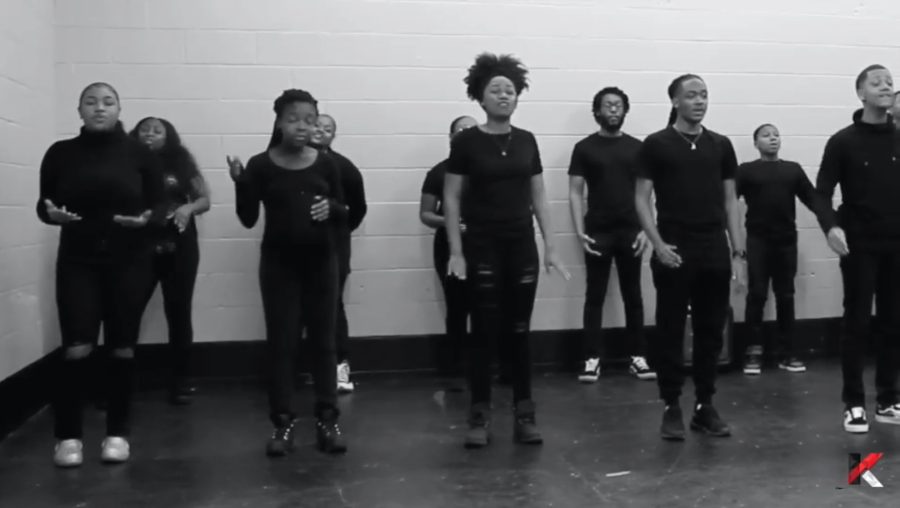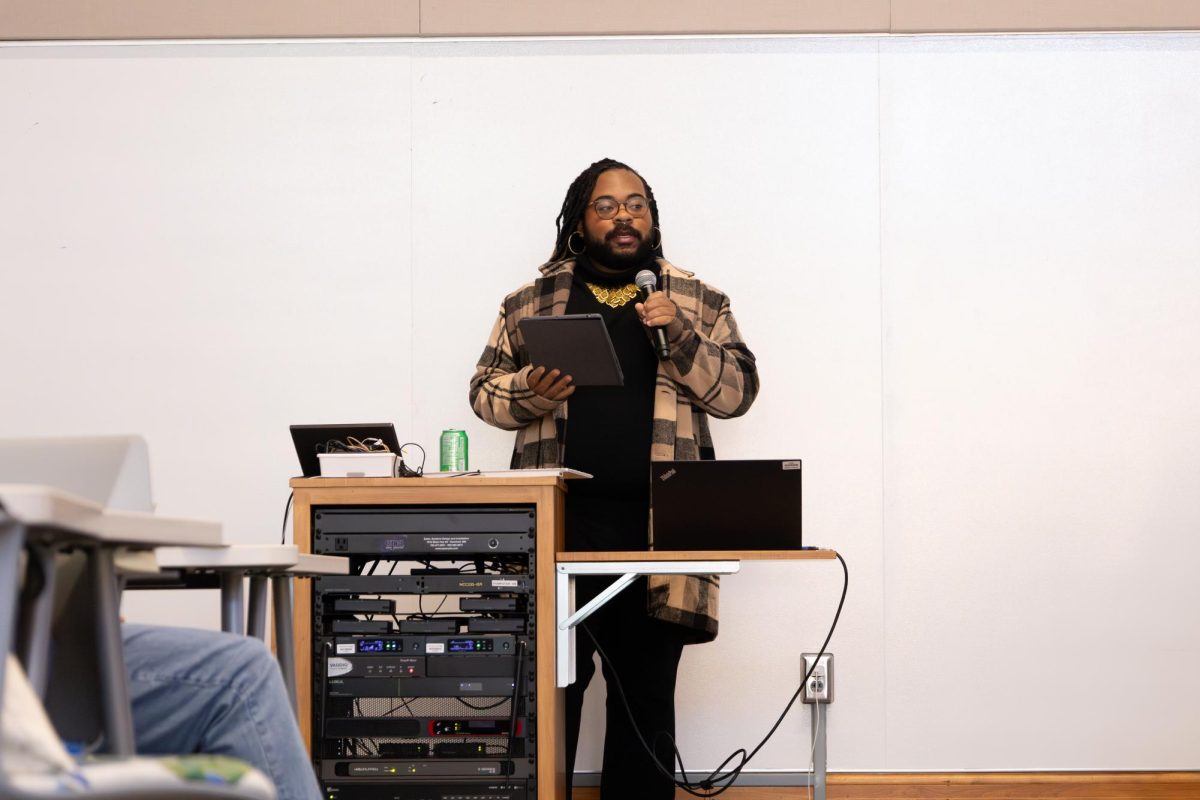After decades of foreign correspondence for major American and international news outlets, Isma’il Kushkush has learned that local stories are never just local.
“Many of these stories are interconnected, so when we talk about national stories, sometimes they have international elements to them. The future is in having a global understanding,” Kushkush said.
Those themes of understanding between communities and across borders were strong in Kushkush’s speech titled “The Evolving Malcolm X,” given at the annual Black History Month Chapel Service on Sunday, February 21. Accompanied by vocal music from Known MPLS, a North Minneapolis youth choir, and remarks from members of Carleton’s Black community, Kushkush was the centerpiece of the event, bringing expertise from his research on Malcolm X as a fellow at the Schomburg Center for Research in Black Culture.
Using Malcolm X’s transformation from a hustler on the streets of Boston and federal prisoner to an internationally prominent leader of the Nation of Islam and Black liberation as a launch point, Kushkush discussed the importance of working with whatever adverse circumstances we might encounter in life to be in a “constant state of improving oneself.”
In a later interview, Kushkush continued, “this element of evolution in one’s life can be useful for anyone across religion and across ethnic backgrounds. It’s the idea of being in one place and moving forward with ideas.”
Taking a lesson from Malcolm X’s life, the best piece of advice that Kushkush offers to young people is to always “be ready to develop and evolve,” no matter what difficult situation we might find ourselves in.
That’s coming from someone who knows firsthand the challenge of being Black in American newsrooms. “The issue of diversity in the newsroom, of bringing different perspectives on social and political issues, is a big challenge in the U.S. media at large,” he explained.
Some of the challenges he has faced include being detained for questioning multiple times by United States border patrol authorities, something he said was equally due to his ethnicity as his work abroad.
While his racial, religious and ethnic identities may be adversarial in this country, Kushkush said that it enabled his work as a foreign correspondent in East Africa for outlets such as the New York Times, CNN and Al Jazeera. Kushkush grew up in Sudan, Kuwait, Syria, and eventually the United States as his father moved around the world for graduate school and work. As a result, he has a dual understanding of American and East African culture and history, which he said has been a major asset in his professional life.
“Having one foot here and one foot there makes a journalist understand what stories are of interest, what stories American audiences will be interested in, but also having a foot there one has a deeper understanding of the social and political makeup of these places,” Kushkush said.
For example, he said one of his most popular stories was one he wrote for the New York Times in 2015 about the rise of American country music in Kenya. The locals would have never thought that their music taste would be an interesting story, but because of his international life, Kushkush knew it would resonate with American audiences. Kushkush always looks for those kinds of stories that establish links between communities and make local stories global.
While the American media industry still has a long way to go in terms of diversity and equity, he said, “people with that [international] experience bring something to the table that slowly is receiving better appreciation in newsrooms.” In the meantime, the best anyone can do is to follow in the footsteps of Malcolm X and keep pushing the boundaries of society despite the limitations it places on us.
Correction: Feb. 27, 2020 — this article has been updated from our Feb. 26 print edition to specify that Known MPLS is the North Minneapolis youth choir that sang at the service.











